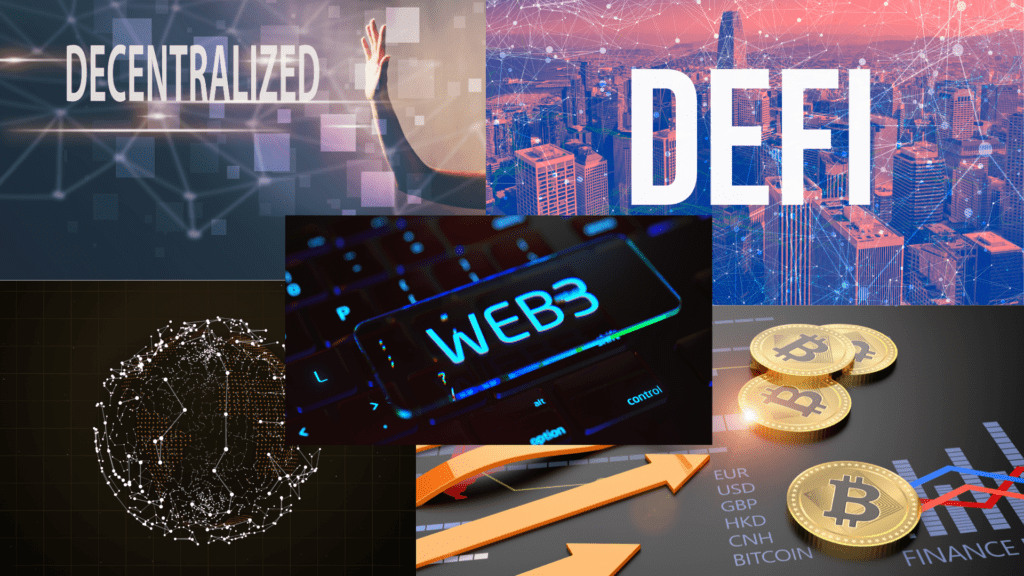
Introduction
Welcome to the digital future! The internet, our global information superhighway, is on the brink of a transformative shift – the move towards decentralization. In this blog post, we’ll explore what embracing the decentralization revolution of the internet means, its implications, and why it’s more than just a tech buzzword – it’s the dawn of a new, more equitable digital era.
Understanding Internet Decentralization
The journey towards a decentralized internet is all about shifting the power dynamics of the digital world. Instead of a few conglomerates holding the reins, imagine a scenario where control and data ownership are spread across a vast network of individual users. This paradigm shift promises enhanced privacy, improved security, and a more democratic internet experience.
Privacy and Security in a Decentralized World
In a decentralized internet, personal data isn’t hoarded in vast, vulnerable central repositories. Instead, it’s securely distributed across numerous locations, significantly bolstering both privacy and security. This setup makes it inherently difficult for hackers to exploit and for big tech to misuse personal information.
The Battle Against Censorship
Centralized control leads to easier censorship. A decentralized web, however, stands as a bulwark against such control. With data and services spread across multiple nodes, censoring content or controlling information becomes a daunting task, ensuring freedom of expression and access to information.
The Role of Blockchain and Distributed Ledger Technology
Blockchain is more than just the backbone of cryptocurrencies; it’s a cornerstone for the decentralized internet. Through technologies like blockchain and distributed ledgers, we can create peer-to-peer networks that support decentralized applications (dApps), ensuring transparent and tamper-proof interactions.
Overcoming Challenges
The road to decentralization isn’t without its bumps. Issues such as scalability, digital divide, and governance pose significant challenges. Addressing these will require innovative solutions, collaborative efforts, and a commitment to an open and inclusive digital world.
The Promise of Web 3.0
Web 3.0 isn’t just a new version of the internet; it’s a complete reimagining. It’s an internet where users regain control over their data, where digital transactions are secure and transparent, and where online experiences are customized and user-centric.
Decentralized Internet Applications:
- Blockchain and Cryptocurrencies:
- Use: The most well-known application of decentralized technology is blockchain, which underpins cryptocurrencies like Bitcoin and Ethereum.
- Impact: Enables secure, transparent financial transactions without the need for traditional banking systems.
- Decentralized Finance (DeFi):
- Use: Financial services like lending, borrowing, and trading are conducted on blockchain without centralized intermediaries.
- Impact: Offers more accessible financial services and democratizes access to banking.
- Non-Fungible Tokens (NFTs):
- Use: Digital assets verified using blockchain technology, representing ownership of unique items, often digital art.
- Impact: Creates a new economy for digital creators and collectors.
- Decentralized Autonomous Organizations (DAOs):
- Use: Organizations governed by smart contracts on a blockchain, with decision-making decentralized among members.
- Impact: Promotes a new form of collective governance and decision-making.
- Decentralized Data Storage:
- Use: Data storage solutions that distribute data across a network, rather than relying on central servers.
- Impact: Enhances data security and privacy, reduces vulnerability to attacks.
Web 3.0 Applications:
- Semantic Web and AI:
- Use: Web 3.0 aims to create a more intelligent and interconnected web, where data is linked in a way that can be easily processed by machines.
- Impact: Facilitates more sophisticated AI applications and smarter search engines.
- Personalized and Decentralized Web Experiences:
- Use: Customized user experiences based on individual data without compromising privacy.
- Impact: More relevant and user-centric online experiences while maintaining control over personal data.
- Integration of IoT with Blockchain:
- Use: Leveraging blockchain for the Internet of Things (IoT) to enhance security and data integrity.
- Impact: Enables secure, trustless communication between IoT devices.
- Decentralized Social Networks:
- Use: Social media platforms that aren’t controlled by a single entity and give users more control over their data.
- Impact: Promotes free speech and reduces the risk of censorship and data misuse.
- Enhanced Privacy and Security:
- Use: Strong focus on user privacy and data security, using encryption and decentralization.
- Impact: Users have greater control and ownership of their data.
Conclusion
The decentralization of the internet is more than a technological evolution; it’s a movement towards a more democratic, secure, and user-empowered digital world. As we embrace blockchain, distributed ledger technologies, and the principles of Web 3.0, we are paving the way for a future where the internet truly belongs to its users. Join us in exploring and shaping this exciting new era of the digital universe!
References
Blockchain and Cryptocurrencies:
- Bitcoin.org: For insights and detailed information on Bitcoin.
- Ethereum.org: A resource for understanding Ethereum and its applications.
Decentralized Finance (DeFi):
- DeFi Pulse: Tracks the metrics and analytics of DeFi projects.
Non-Fungible Tokens (NFTs):
- OpenSea: A popular marketplace for buying and selling NFTs.
Decentralized Autonomous Organizations (DAOs):
- DAOstack: Provides information and tools for creating and managing DAOs.
Decentralized Data Storage:
- IPFS: Information on the InterPlanetary File System, a protocol for decentralized storage.
Semantic Web and AI (Web 3.0):
- The World Wide Web Consortium (W3C): Information on semantic web standards.
Personalized and Decentralized Web Experiences:
- Solid Project by Tim Berners-Lee: Aims to reshape the web, enabling users to own and control their data.
Integration of IoT with Blockchain:
- IBM Blockchain: Explore how blockchain can transform IoT.
Decentralized Social Networks:
- Mastodon: An example of a decentralized social network platform.
General Information on Web 3.0 and Decentralization:
